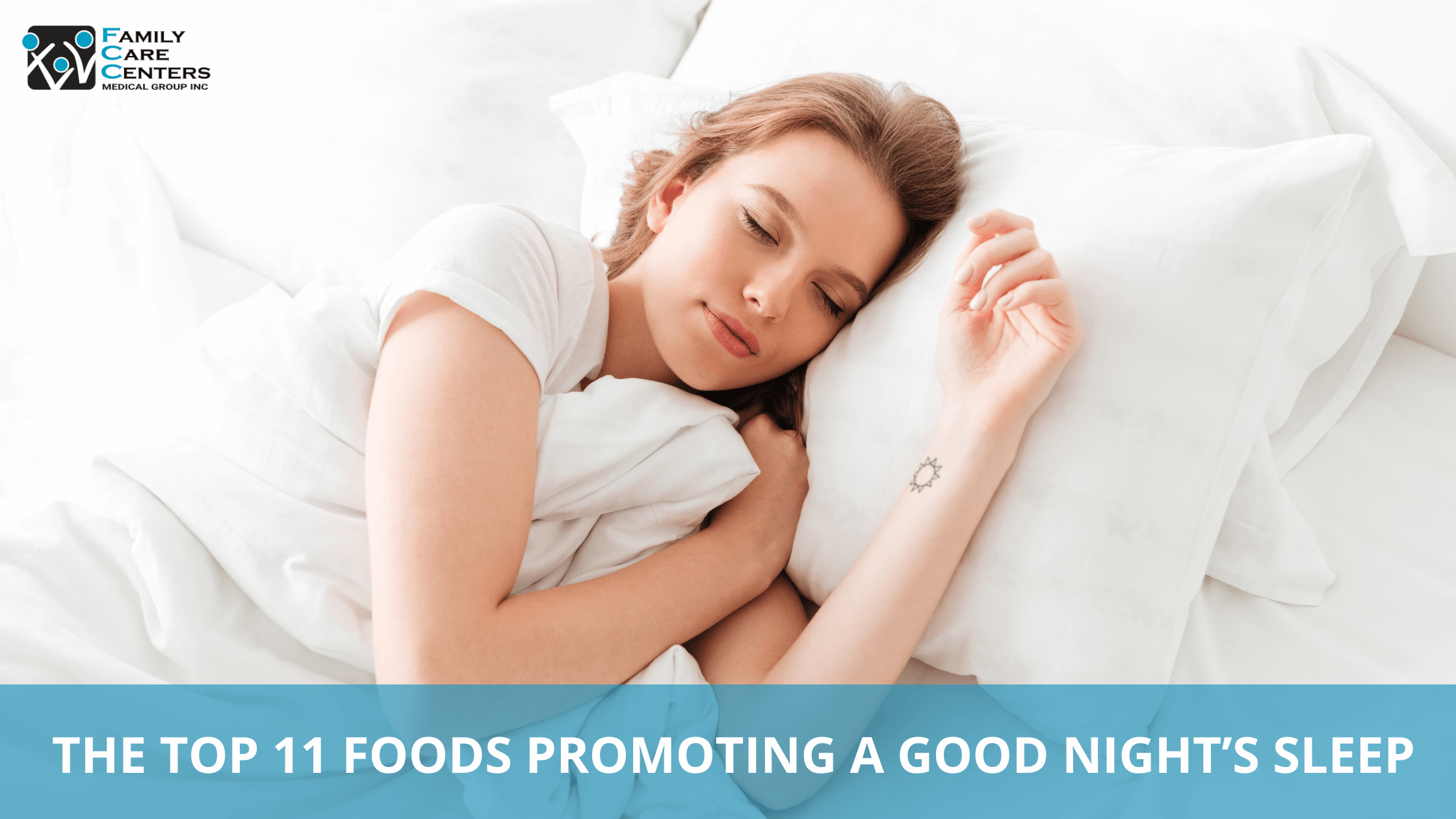


You may have heard that regularly getting a good night’s sleep is as essential to your health as eating right and working out. Studies have shown that quality sleep can boost your cognitive development, learning ability, and memory. Proper sleep habits improve your mood and can help your heart health, metabolism, and resistance to infection.
For adults, sufficient sleep translates into a minimum of 7 hours, although this can vary as you age. But regardless of how much sleep you get, if you wake up feeling sleepy or fatigued, chances are you’re sleep-deprived, which is not good for your health.
Surprisingly, one way to get better sleep is to eat the right kinds of food. In addition to improving body functions and supporting your immune system to fight off infections, a nutrient-dense diet will also provide you with vitamins, minerals, and other nutrients that possess sleep-promoting properties.
Eating bananas before bedtime supply the important sleep promoters tryptophan and melatonin. In one study, elderly individuals with insomnia slept better after taking a dose of the nutrition-rich fruit in the evening. Melatonin can help an irregular sleep cycle by signaling your body that it’s time to fall asleep.
Cherry consumption can increase key neurotransmitters that counteract insomnia. This remedy can be particularly helpful for individuals experiencing age-related sleep issues, because it increases the supply of melatonin in the bloodstream.
Dairy products like milk and yogurt promote quality sleep in two key ways. They contain tryptophan, a sleep-inducer, and calcium, which can help with muscle relaxation.
Almonds and pistachios also contain melatonin that can help even out sleep cycle variations. Studies show that the composition of melatonin in these nuts is significant: an ounce of these nuts per day should be enough.
Non-caffeinated herbal teas, especially chamomile, have sedative properties that may promote relaxation. In one study, individuals who took 270 mg of chamomile twice a day for about a month enjoyed better sleep than those that didn’t. They fell asleep faster and experienced fewer daytime symptoms of sleep problems.
Broccoli is rich in glucoraphanin, a compound that produces sulforaphane. Not only can sulforaphane increase melatonin, but it can also help control inflammation, which interrupts the normal sleep cycle. After eight sleep-deprived individuals consumed broccoli sprout capsules containing 30 mg glucoraphanin for four weeks, their melatonin levels and anti-inflammatory activity increased, a study revealed.
Since eggs contain melatonin, eating them as part of a balanced and diverse diet may lower your risk of poor-quality sleep. One study recommends eating them in moderation while increasing your intake of fruits and seafood.
The kiwi fruit is rich in antioxidants and serotonin, compounds that can help with difficulty falling asleep or waking up in the middle of the night. In one study, individuals experiencing sleep disturbances ate two kiwis an hour before bedtime for four weeks. Their ability to fall asleep, sleep duration, and sleep quality improved by 35.4%, 13.4%, and 42.4% respectively.
Eating avocados may provide sleep benefits to individuals with a vitamin B9 or folate deficiency. The fruit is rich in folate, which stimulates the production of numerous neurotransmitters, such as melatonin and serotonin.
Consuming pineapple before going to bed may help you fall asleep by increasing melatonin levels in your system. Researchers studying 12 men who had consumed pineapple juice observed a significant improvement in sleep scores.
Oats can supply a decent amount of sleep promoters like melatonin to give you a good night’s rest. By consuming a small bowl of oatmeal as part of a low-fat diet before bedtime, you can increase serotonin production in your brain to fall asleep faster.
Besides eating foods that help you sleep better, there are habits you can adopt to improve the quality of your slumber. Good sleep habits include:
Include these foods in your diet and incorporate the above-mentioned habits; you will surely get a good night’s sleep. However, if the situation persists, then you might need to consult a doctor or urgent care center.
If you’re experiencing any issues that may be affecting your quality of sleep, walk into any of FCCMG’s urgent care centers: Irvine Woodbridge Walk-in Urgent Care, Fountain Valley Urgent Care, or Costa Mesa Urgent Care for professional assistance. Our medical experts can provide you with the personalized care you need to overcome your sleep problems. Contact us today!